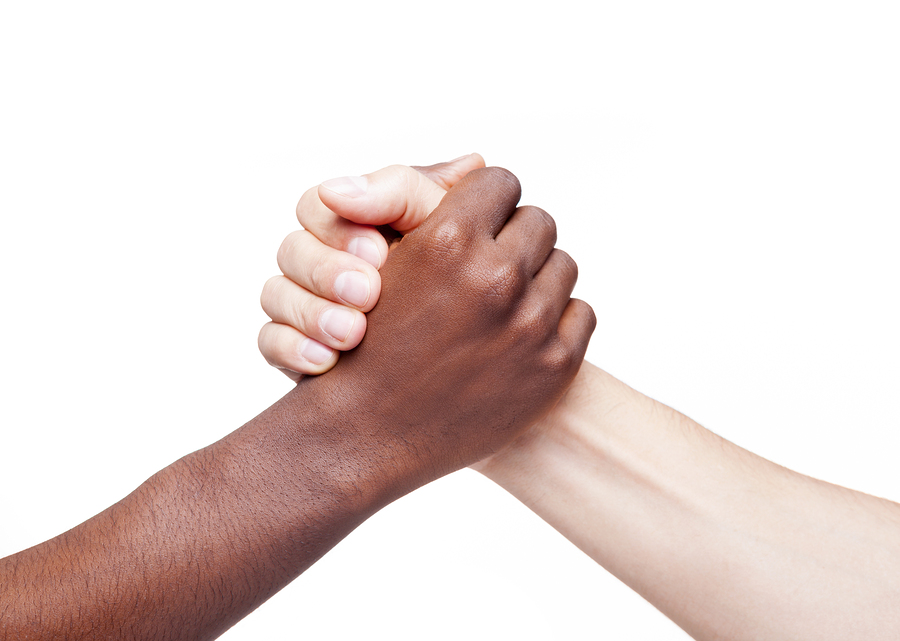Prejudice at ISB: Yes, We Need to Talk About It
September 20, 2019
It would be a fair assumption that attending an international school opens up an opportunity to meet those with various ethnic backgrounds in a diverse environment. There are a number of students in ISB that have grown up around nothing but cultural and racial diversity; it makes complete sense that race and culture would become almost indifferent after being so used to so much of it. Would this also indicate treating others equally no matter their background?
A year ago, I had written an investigative paper about racial discrimination and I had one mission; to seek out those who have faced discrimination like I have. I was surprised to find that there was in fact a good amount of racial discrimination in a school like ours– a place we are told to trust. I, along with many others, am not naive to reality of our still bigoted society, however, it was not until (a short time after I wrote my investigative paper) that I had experienced discrimination on a level I had not expected from our given environment.
It was months ago when I had met the parents of an old friend for the first time. It was not uncommon for them to ask my ethnicity (as I do look quite unique and often get this question), however, what had beyond stunned me was after revealing my ethnicity (African-American and Caucasian) was when the family had instantly become closed off and passive-aggressively shunned me. There was even an audacity where said friend’s sibling had said they had to “watch out” for me because of how “the blacks are dirty,” going so far as to compare people of color to monkeys. It was astonishing; even more so that said old friend had thought of the conundrum as funny.
Not only had I been directly referred to offensively, but I had once or twice been seen as “the black friend” (or more accurately the “part black friend”) among friend groups here and back in America during my summers. Being seen as “the black friend” did not only mean I’d have stereotypes stapled to my forehead, but being asked for permission for others to use popular derogatory terms (I’m sure your interpretation could be used for what term I could be referring to). I have also experienced others (to specify: non African-Americans) feeling entitled to use said popular derogatory terms because of two given reasons: because I’m their friend or because “I’ve been through hard times just like black people”.
Even through extensive discussion, it seems to be beyond peoples’ grasps that comments and name-calling like this is offensive, culturally insensitive and backwater behavior. So how is any of this important? Just because I’ve experienced this at ISB doesn’t mean others have, right? When I wrote my investigative journalism paper about a year ago, I interviewed two people; both reporting multiple incidents inside school of their race or culture being mocked and belittled. One interviewee, who went by the name Tracer for anonymity (Caucasian ethnicity), had reported that he had been told by his health teacher that it is always “white men who are the problem” and “white men who abuse their sex privileges.” The second interviewee, who was just referred to as Anonymous (Indian ethnicity), reported multiple incidents of students mocking her with comments like “the Indian laughed so it doesn’t matter” after the telling of a joke.
This year I conducted a short interview with just one question: has anyone ever used your race as an excuse to judge you or offend you? Anonymous Hispanic, as she requested to be called, said she “experiences similar situations” as I do, especially with the controversial debate of Hispanic immigrants among Americans. Anonymous Hispanic expressed distress when recalling the comments of past friends saying her “dad isn’t a real American because he was born in El Salvador” or “just because she’s [her mom] is Puerto Rican doesn’t make her an American.” Anonymous Hispanic also expressed incidents of students, friends and family alike judging her for her dark skin color or only viewing her as “the hispanic friend that will live it up with anything and anyone”.
There is no place for crude comments and racial discrimination anywhere, especially not a school that is meant to contain a universial judge-free mindset. Racism should be addressed more aggressively rather than just a diversity assembly in the middle school or clubs in the High School. Perhaps including lessons or conversations during the health and seminar classes (for those grades that have them) to advocate against racism, or an annual silent protest against racism. Bringing light to what really happens to some students may very well make our school a better place without the fear of being judged, scrutinized or commented on.
